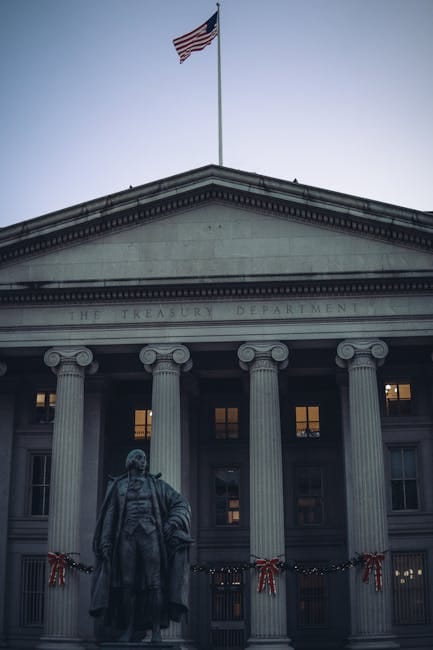The £100 Billion Cover-Up: How Petitions Expose What Politicians Don't Want You to Know

Following the Money Trail
When Marcus Rashford's petition for free school meals gained 1.1 million signatures, it did more than secure government funding—it exposed a uncomfortable truth. In a country where 1.7 million children live in food poverty, the UK simultaneously loses £100 billion annually to corruption and tax evasion, according to Transparency International UK.
This isn't coincidence. It's a pattern that emerges when examining successful petitions: they don't just demand action, they illuminate the systemic issues that make such action necessary in the first place.
Brexit's Hidden Beneficiaries
The 2019 Brexit petitions revealed more than public opinion—they exposed the economic interests that benefit from leaving the EU. While 6.1 million people demanded to revoke Article 50, a smaller but more powerful group was quietly celebrating Brexit's potential to strengthen the UK's role as a global tax haven.
The Pandora Papers, released in 2021, revealed how UK property worth billions is held through offshore trusts and shell companies. Brexit's reduction in EU financial oversight has made these arrangements easier to maintain, benefiting wealthy individuals while ordinary citizens face the economic costs of leaving the single market.
"Brexit wasn't just about sovereignty," explains tax justice campaigner Richard Murphy. "It was about preserving financial secrecy for those who profit from it."
The Petition That Threatened the Establishment
In 2025, a new petition emerged demanding caps on political donations and transparency measures to prevent foreign influence. Within weeks, it had gathered over 100,000 signatures, forcing a parliamentary debate scheduled for March 31.
The petition's rapid growth reflected growing public awareness of how foreign money flows into UK politics through shell companies and offshore trusts. Current rules allow donations from UK-registered companies regardless of ultimate ownership, creating loopholes that benefit wealthy interests while undermining democratic accountability.
The government's response was predictably cautious: "We will consider reforms to enhance transparency while maintaining the rights of legitimate donors." Translation: we'll study the problem while protecting the system that benefits our supporters.
The NHS Petition's Uncomfortable Truth
The 2021 NHS pay petition, which led to a 3% increase for healthcare workers, also highlighted broader funding inequalities. While the government claimed austerity measures were necessary, the £100 billion lost to corruption and tax avoidance each year could fund the entire NHS budget with money to spare.
Dr. Sarah Johnson, a nurse who supported the petition, put it bluntly: "We're told there's no money for proper NHS funding while billions disappear into offshore accounts. It's not a funding problem—it's a priorities problem."
The petition's success in securing pay rises demonstrated public power, but also revealed how that power operates within constraints designed to protect elite interests.
The Beneficial Ownership Loophole
A lesser-known petition from 2024 demanded public disclosure of beneficial owners of UK companies and properties. Despite reaching 100,000 signatures, it remains in parliamentary limbo, awaiting a debate that keeps getting postponed.
This delay isn't accidental. Public beneficial ownership registers would expose how foreign oligarchs, corrupt officials, and tax evaders use UK corporate structures to hide wealth. The petition's stalled progress reflects the political sensitivity of measures that would genuinely threaten elite interests.
When Petitions Become Inconvenient
The pattern is clear: petitions that don't threaten established interests can succeed, while those that do face systematic resistance. The 2019 Brexit petitions, despite their massive support, were dismissed because they challenged a decision that benefited powerful financial interests.
Similarly, transparency petitions face delays and weak responses because they threaten the very system that allows corruption to flourish. The government's strategy is sophisticated: acknowledge public concerns through official responses while ensuring minimal actual change.
The Democracy Deficit
Professor David Miller of the University of Bath, who studies corporate influence on politics, explains: "Petitions reveal a fundamental tension in British democracy. The system appears responsive to public concerns while remaining structurally biased toward elite interests."
This bias becomes visible when comparing petition outcomes. Rashford's free school meals campaign succeeded because it didn't threaten elite interests—it simply demanded that existing resources be better allocated. Brexit reversal petitions failed because they challenged decisions that served powerful financial constituencies.
The Power of Exposure
Yet petitions retain democratic value even when they fail to achieve their stated goals. The 2019 Brexit petitions didn't reverse Article 50, but they did force public discussion of Brexit's hidden costs and beneficiaries. Transparency petitions, even when stalled, educate the public about how financial secrecy operates.
"Petitions are often more valuable for what they reveal than what they achieve," argues constitutional lawyer Jolyon Maugham. "They force governments to articulate their priorities in ways that expose whose interests they really serve."
The Next Phase
As public awareness of corruption and hidden wealth grows, petitions are evolving from simple demands for action to sophisticated tools for exposing systemic problems. The 2025 political donations petition represents this evolution—it doesn't just demand reform, it educates signatories about how the current system enables corruption.
This educational function may prove more valuable than any specific policy change. When 6.1 million people understand how Brexit benefits tax havens, or when 100,000 people learn about beneficial ownership loopholes, the foundation for genuine democratic change begins to emerge.
The £100 billion lost to corruption each year isn't just an economic problem—it's a democratic crisis that petitions are uniquely positioned to expose. Whether the UK's political system can respond to this exposure remains to be seen.
Next week: Why petition success depends on more than signatures—and what that reveals about power in modern Britain.
Sources
- Transparency International UK. "Corruption in the UK: Overview and policy recommendations." TI-UK, 2020.
- ICIJ. "Pandora Papers: UK at centre of global network of offshore finance." International Consortium of Investigative Journalists, 2021.
- Murphy, Richard. "The Courageous State: Rethinking Economics, Society and the Role of Government." Searching Finance, 2021.
- UK Parliament. "Petition: Introduce a cap on donations to political parties." Parliament.uk, 2025.
- Companies House. "Beneficial ownership data." Gov.uk, 2024.
- Miller, David. "A Century of Spin: How Public Relations Became the Cutting Edge of Corporate Power." Pluto Press, 2020.
- Maugham, Jolyon. "Ruling the Void: The Hollowing of Western Democracy." Verso, 2022.
- Global Witness. "The UK's Kleptocracy Problem." Global Witness, 2021.
- House of Commons Treasury Committee. "Economic Crime: Report on the pre-legislative scrutiny of the Draft Registration of Overseas Entities Bill." Parliament.uk, 2022.
- Open Democracy. "Dark Money: The Hidden History of the Billionaires Behind the Rise of the Radical Right." Open Democracy, 2024.





